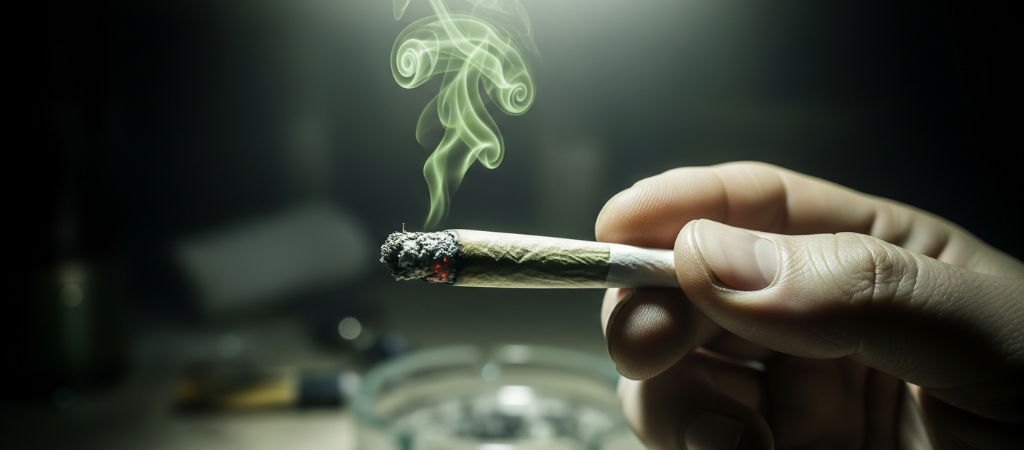Ganja, commonly known as marijuana or weed, is often seen as harmless. Many people believe it’s safe because it’s natural or legalized in some regions. But regular, long-term use can lead to dependency. For some, quitting ganja feels as challenging as giving up alcohol or other drugs. That’s why understanding ganja addiction and effective treatment is crucial.
Understanding Ganja Addiction
What is Ganja?
Ganja comes from the cannabis plant. It’s widely used for recreational and medicinal purposes. While many see it as mild compared to narcotics, it can still cause addiction.
Can Marijuana Really Be Addictive?
Yes. Studies show that about 1 in 10 cannabis users develop dependence. The number rises to 1 in 6 for those who start using as teenagers.
Signs and Symptoms of Dependency
Cravings for ganja
Difficulty cutting down
Using it to cope with stress
Neglecting responsibilities
Withdrawal symptoms when not smoking
Causes and Risk Factors
Biological and Genetic Influences
Genetics may increase vulnerability. Some people’s brains are more sensitive to THC, the active compound in cannabis.
Environmental and Social Triggers
Peer pressure, stress, and availability play major roles in forming habits.
Connection with Mental Health Issues
Anxiety, depression, and trauma can make people more likely to misuse ganja.
The Impact of Ganja Addiction
Physical Health Effects
Respiratory problems
Weakened immune system
Reduced energy and stamina
Mental and Emotional Challenges
Increased anxiety or paranoia
Poor memory and concentration
Reduced motivation (“amotivational syndrome”)
Types of Ganja Smoking Addiction Treatment
Detoxification Process
The body clears THC, which can take weeks due to storage in fat cells. Symptoms like irritability, insomnia, and anxiety can be managed with support and healthy coping strategies.
Inpatient Rehabilitation
Rehab centers provide structured care, peer support, and professional guidance. Programs usually last 30–90 days, depending on severity.
Outpatient Programs
These programs are ideal for mild to moderate addiction cases. They allow flexibility for work, school, or family duties while receiving treatment.
Therapies for Ganja Addiction
Cognitive Behavioral Therapy (CBT)
Helps change thought patterns that fuel dependency.
Motivational Interviewing (MI)
Encourages inner motivation to quit and stay sober.
Group and Family Therapy
Strengthens communication and support networks.
Holistic and Alternative Treatments
Yoga, meditation, fitness routines, and healthy nutrition all play supportive roles in recovery. They help balance mind and body, reducing cravings.
Medication-Assisted Approaches
Unlike opioids or alcohol, there are no FDA-approved medications specifically for cannabis addiction. However, medications may help manage anxiety, depression, or sleep issues during withdrawal.
Support Systems and Community Resources
Marijuana Anonymous (MA)
A 12-step program designed for cannabis users. Focuses on self-empowerment and behavioral change. We provide community, accountability, and shared experiences.
Relapse Prevention Strategies
Identifying Triggers and Main Points
Stress, social gatherings, or boredom can spark relapse.
Building Healthy Coping Mechanisms
Activities like journaling, sports, and meditation replace smoking.
Creating a Relapse Prevention Plan
Planning ahead reduces risks and strengthens commitment.
Life After Treatment
Recovery doesn’t end with treatment. It’s about rebuilding a meaningful life. Many discover new hobbies, careers, and healthier relationships once free from dependency.
Challenges in Ganja Addiction Treatment
Stigma, misconceptions, and denial make treatment harder. Accessibility to rehab and staying motivated for the long haul are also common challenges.
Interpretation of Ganja Addiction
Ganja addiction may feel difficult to overcome, but recovery is possible. With the right treatment plan, therapy, support groups, and lifestyle changes, you can break free from dependency. Remember, healing isn’t just about quitting—it’s about building a healthier, happier, and more fulfilling life.

